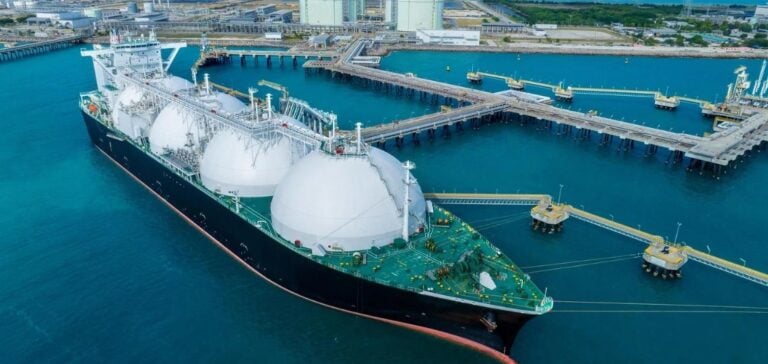Hedge funds are playing a growing role in Europe’s natural gas and liquefied natural gas (LNG) markets, increasing price volatility at a crucial time as the continent prepares for the winter season.
By closing their positions, these financial players are exacerbating the downward pressure already present, caused by fragile fundamentals on the European gas market.
This situation is prompting European regulators to consider new rules to control these speculative movements.
Call for more supervision
A recent European Union report, headed by Mario Draghi, calls for greater regulation of hedge fund activities in the energy markets.
The document calls for measures inspired by US practices, such as the introduction of financial position limits and dynamic caps in the event of marked divergences between European and world energy prices.
The proposals aim to reduce the risk of excessive volatility and stabilize markets, by ensuring that rules apply uniformly to spot and derivative energy markets.
Regulators also envisage integrated supervision of energy and derivatives markets, to better control the activities of funds and other financial players.
This perspective is echoed by some market players, who feel that current regulation is not sufficient to limit the speculative behavior that amplifies price movements.
Reduced positions in the futures market
According to recent data from the Intercontinental Exchange (ICE), hedge funds have reduced their net long positions in Dutch TTF natural gas futures, signaling a retreat in the face of continuing price declines.
For the week ending September 6, total positions amounted to 3.67 billion lots, the majority (63%) of which were held by unregulated commercial companies and endowments.
Investment funds, including hedge funds, account for around 22% of these positions, while financial institutions such as investment banks and brokers represent 15%.
This reduction in net long positions reflects a strategic adjustment in the face of excess LNG supply in Europe and demand that remains subdued ahead of winter.
Physical traders, meanwhile, are increasing their long positions, anticipating a possible upturn in demand during the heating season.
The combination of these movements creates a complex price dynamic, making short-term predictions difficult.
Immediate impact on gas and LNG prices
The funds’ position adjustments had a direct impact on gas prices in Europe.
The price of the TTF month-ahead contract, the benchmark on the European market, fell to 35.195 €/MWh on September 10, a drop of around 5% in one day.
The contract for 2025 also fell, to €37.415/MWh, with position closures amplifying the downward pressure.
This downward momentum was echoed in the LNG market, where Platts’ DES North-West Europe marker for October fell by 5%, settling at $11.189/MMBtu.
Despite potential bullish signs, such as increased bidding from exporting countries like Egypt, the closing of positions by funds continues to dictate price direction.
Some traders indicate that the abundance of supply, combined with a lack of clear demand until the end of the year, is making the market uncertain and volatile.
An uncertain market outlook
As winter approaches, gas and LNG market operators are keeping a close eye on hedge funds’ positions.
Although physical players are increasing their long positions, momentum remains fragile due to uncertainty over future demand and geopolitical tensions that could affect supplies.
The European Union and its regulators are therefore seeking to strengthen their regulatory framework to limit market fluctuations exacerbated by financial movements.
It is clear that the increased participation of hedge funds and other non-traditional financial players in the gas and LNG markets is changing traditional dynamics.
Current regulatory discussions and proposals to introduce financial position limits reflect a growing awareness of the risks associated with these practices.
The coming months will be crucial in determining whether these proposals are adopted, and how they might influence the structure and stability of Europe’s energy markets.






















